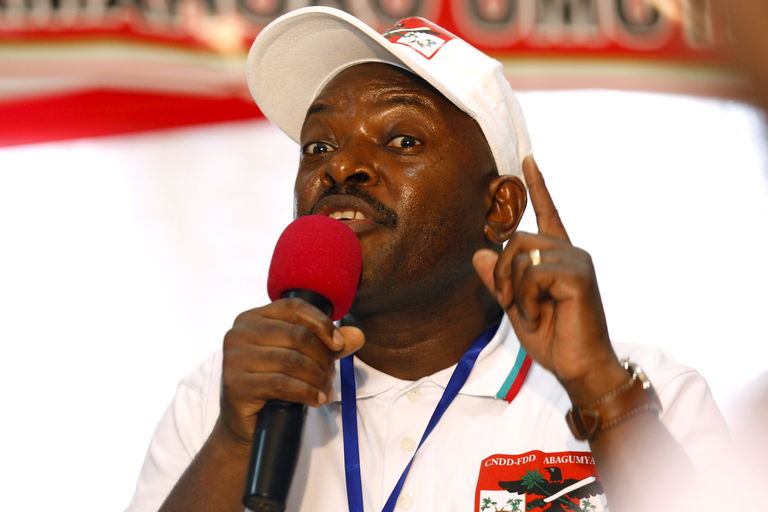Burundi’s parliament has overwhelmingly approved a bill that calls for the country to withdraw from the International Criminal Court (ICC), marking a new stage in its growing isolation from the international community.
After the lower house of parliament passed the bill Wednesday morning, it was presented to the Senate and adopted unanimously (39 votes out of 39 voters). The bill now awaits the final signature by President Pierre Nkurunziza.
Even after the country votes to leave the ICC, the government must write a letter to the UN Secretary General explaining its intention to leave, and the withdrawal will only take effect a year after the letter is received.
“No letter received as of today indicating their decision,” said UN spokesperson Stephane Dujarric. “Obviously, if a letter was received, it would be regrettable.”
A withdrawal of Burundi from the ICC would be a first in the history of the Court.
The vast majority of members who spoke before the National Assembly, in which the ruling party, CNDD-FDD, has a large majority (86 seats out of 121), justified the withdrawal.
“Those who use the ICC want to decapitate our institutions. I ask honorable members to vote for the withdrawal of Burundi ICC – for our independence,” justice minister, Aimee Laurentine Kanyana, was quoted as saying.
“The ICC is an instrument that is being used to try to change power” in Burundi, added a CNDD-FDD member, Aloys Ntakarutimana.
Very few dissenting voices were heard. “The output of Burundi of the ICC is a political and diplomatic error,” said Ndayizamba André, a member of the minority wing of UPRONA, a party generally close to the government.
Burundi expressed its intention to leave the ICC last week.
The country slid into political crisis after Pierre Nkurunziza won a third term as president, which many called unconstitutional. Since announcing his candidacy in April 2015, violence has left more than 500 dead and forced more than 270,000 people into exile.
ICC prosecutor Fatou Bensouda launched a preliminary investigation in April into murder, torture and rape in particular, in Burundi.
The ICC cannot investigate non-member countries of its own initiative, but may do so if the UN Security Council authorized it, as was the case in Darfur (2005) and Libya (2011).
The Burundian government has faced series of accusations in the past few weeks by the United Nations, for its alleged involvement in the violence and forced disappearances in the country.
On September 20th, a UN report accused Bujumbura of being responsible for serious human rights violations, systematic and consistent, and warned against possible ‘crimes against humanity’ and a ‘great danger of genocide’.








